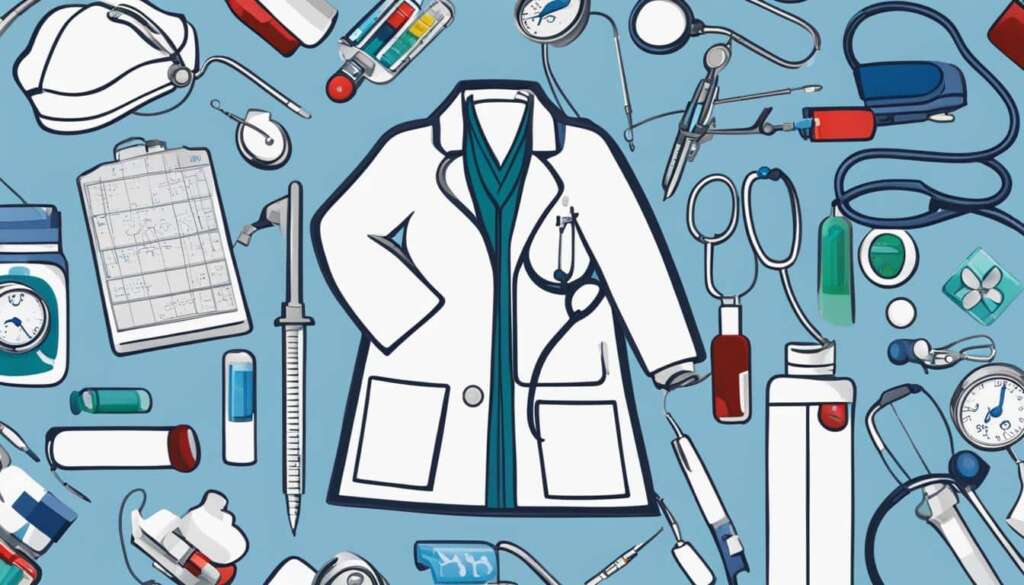Table of Contents
Have you ever noticed the letters “MD PC” after a doctor’s name and wondered what they mean? In the world of medical titles and credentials, MD PC stands for “Medical Doctor, Professional Corporation.” Let’s delve into the meaning behind this designation and its significance in the medical field.
So, what does MD PC mean? The “MD” signifies that the individual has completed medical school and holds a Doctor of Medicine degree, indicating their expertise in the field of medicine. On the other hand, the “PC” stands for Professional Corporation, indicating that the doctor operates their practice as a professional corporation.
Why is this distinction important? Structuring a practice as a professional corporation can offer certain tax and liability benefits for doctors. It allows them to separate their personal assets from their practice’s liabilities, providing an additional layer of protection.
It’s worth mentioning that MD PC is commonly used in the United States, where medical professionals often choose to establish professional corporations for their practices.
Understanding medical titles and degrees is essential, as it enables patients to comprehend the qualifications and expertise of their healthcare provider. In the next section, we’ll explore the various medical degrees and credentials healthcare professionals can hold.
Understanding Medical Degrees and Credentials
In the medical field, there are various degrees and credentials that healthcare professionals can hold. These qualifications signify their level of education, training, and specialization. Understanding these medical degrees and credentials is crucial for patients and healthcare providers alike. Below are some of the most common medical degrees and credentials:
1. Medical Doctor (MD)
The Medical Doctor degree, often abbreviated as MD, is the most common medical degree. It is obtained by completing medical school, which generally consists of four years of rigorous education and training. MDs are qualified to diagnose and treat different medical conditions and can work in various specialties.
2. Doctor of Osteopathic Medicine (DO)
The Doctor of Osteopathic Medicine degree, abbreviated as DO, is another type of medical degree. DOs receive the same training as MDs but also have a unique focus on musculoskeletal health and the body’s interconnectedness. They are licensed physicians who can specialize in a wide range of medical fields.
3. Nurse Practitioner (NP)
Nurse Practitioners, also known as NPs, are advanced practice registered nurses who have completed graduate-level education and training. They can diagnose and treat medical conditions, prescribe medications, and provide comprehensive healthcare services. NPs often specialize in areas such as pediatrics, family medicine, or gerontology.
4. Physician Assistant (PA)
Physician Assistants, or PAs, work closely with physicians and other healthcare professionals to provide medical care. They complete a master’s degree program focused on healthcare and clinical training. PAs can assess patients, diagnose illnesses, prescribe medications, and assist in medical procedures.
5. Medical Assistant (MA)
Medical Assistants, or MAs, play a vital role in clinical and administrative tasks in healthcare settings. They receive specialized training and certification to support physicians, nurses, and other healthcare professionals. MAs can perform tasks such as taking patient histories, measuring vital signs, and preparing examination rooms.
These are just a few examples of medical degrees and credentials in the healthcare field. Each qualification represents a specific level of expertise and plays a crucial role in providing quality care to patients. Understanding the different types of healthcare professionals and their credentials can help patients make informed decisions and foster effective collaboration among healthcare teams.
Importance of Medical Credentials in Patient Care
Medical credentials play a crucial role in ensuring optimal patient care, healthcare quality, and compliance with healthcare regulations. These credentials indicate that healthcare professionals have met rigorous standards and possess the necessary qualifications to provide safe and effective care to patients.
By obtaining medical credentials, such as medical degrees and certifications, healthcare professionals demonstrate their commitment to continuous education and staying updated with the latest advancements in their field. This ongoing learning process equips them with the knowledge and skills needed to deliver evidence-based care and make informed medical decisions.
In addition to education and training, medical credentials also ensure accountability and ethical conduct among healthcare professionals. Regulatory bodies and professional organizations set standards and codes of practice that practitioners must adhere to, promoting patient safety, confidentiality, and ethical treatment. This accountability helps maintain a high standard of care and fosters trust between patients and healthcare providers.
Furthermore, medical credentials serve as a valuable tool for patients when making informed decisions about their healthcare. Knowing that their healthcare provider possesses the appropriate credentials gives patients confidence in the provider’s qualifications and expertise. Patients can feel more comfortable entrusting their health to someone who has demonstrated their proficiency and dedication to the medical profession.
FAQ
What does MD PC mean after a doctor’s name?
MD PC stands for “Medical Doctor, Professional Corporation.” It signifies that the doctor is a licensed medical professional who operates their practice as a professional corporation, providing certain tax and liability benefits.
What are some common medical degrees and credentials?
Some common medical degrees and credentials include MD (Doctor of Medicine), DO (Doctor of Osteopathic Medicine), NP (Nurse Practitioner), PA (Physician Assistant), and MA (Medical Assistant).
Why are medical credentials significant in patient care?
Medical credentials are important as they indicate that healthcare professionals have undergone the necessary education, training, and examinations to practice in their respective fields. This ensures the quality and safety of patient care and complies with healthcare regulations.







